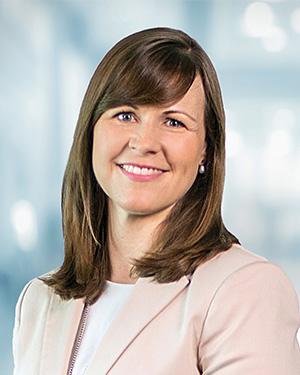Research News
10/05/2021
Dr. Michaela Gack Receives Prestigious NIH Director’s Pioneer Award
Dr. Gack has received a five-year, $5.6 million award as part of NIH’s High-Risk, High-Reward Research Program to study novel approaches to target viral pathogens, which may help inform the development of new antiviral therapies.

Michaela Gack, PhD, scientific director of the Florida Research & Innovation Center, has received a National Institutes of Health (NIH) Director’s Pioneer Award to support her research toward the development of broad-spectrum antiviral drugs.
The prestigious grant is part of NIH’s High-Risk, High-Reward Research Program, which funds highly innovative research with the potential for broad impact, and will provide $5.6 million over five years. This year, only 10 awardees across all disciplines were selected for the Pioneer Award. Dr. Gack is the first person from Cleveland Clinic to be named a recipient.
“I am humbled to receive this award and to be part of such an esteemed group of recipients,” said Dr. Gack, who is also a member of Cleveland Clinic’s Global Center for Pathogen Research & Human Health. “Most NIH grants require a great deal of supporting preliminary data. By nature of the High-Risk, High-Reward Research Program, all you need is an innovative and promising idea. I am excited that NIH sees merit in our approach, particularly since our research has implications for developing broad-spectrum antivirals. This support stands to greatly accelerate discovery, which would be important to help with this pandemic and future viral threats.”
A new research direction
Projects funded by the NIH Director’s Pioneer Award must explore a completely new direction of research from anything grantees have worked on previously. Until now, Dr. Gack’s research has focused on how the intricate interplay between viruses and the human immune system impacts the outcome of viral infection and disease. Her work has also centered around how modifying enzymes in antiviral gene expression may affect the ability of human cells to detect viruses.
With this new award (grant #DP1-AI169444-01), she will investigate how human modifying enzymes “tag” viral proteins and thereby promote virus replication.
Viruses contain very few genes, and therefore typically do not encode the enzymes needed to modify viral proteins and support their function. While there is emerging evidence that viruses use human “tagging” enzymes to promote virus survival and replication, the precise mechanisms of viral protein modification and the specific human enzymes involved have been scarcely studied. Targeting the host enzymes that are essential for virus replication in human cells might be an effective and broadly beneficial approach to combat viral infections.
Study details
Dr. Gack and her team will study multiple viruses from different families—including SARS-CoV-2 (the virus that causes COVID-19), dengue, Zika, West Nile and influenza—to understand if viruses do in fact rely on human modifying enzymes for their replication and, if so, can those enzymes be blocked to treat or prevent infection.
According to Dr. Gack, this treatment approach would have several benefits over the traditional antiviral approach, which is to target specific viruses. “We believe that multiple related viruses often utilize or interact with the same enzymes, so developing a single antiviral that targets those shared enzymes could be truly broad spectrum.” Additionally, every time a virus is directly targeted, it has the potential to mutate. Developing an antiviral drug that targets human enzymes may help prevent this.
“It is a remarkable honor for Dr. Gack to be selected for the NIH Director’s Pioneer Award, which recognizes her work as a pioneering scientist who is finding solutions for our patients,” said Serpil Erzurum, MD, Cleveland Clinic Chief Research & Academic Officer. “Her innovative research embodies the spirit of Cleveland Clinic and stands to have important benefits for this pandemic and future viral threats.”
Dr. Gack will collaborate with researchers from all across the Cleveland Clinic enterprise, including those at its main campus in Cleveland, Ohio. She will work with other researchers from the Global Center for Pathogen Research & Human Health (part of the Cleveland Innovation District) and the Center for Therapeutics Discovery.
For more information on the award, please visit: https://commonfund.nih.gov/pioneer/AwardRecipients.
Featured Experts
News Category
Related News
Research areas
Want To Support Ground-Breaking Research at Cleveland Clinic?
Discover how you can help Cleveland Clinic save lives and continue to lead the transformation of healthcare.
Give to Cleveland Clinic